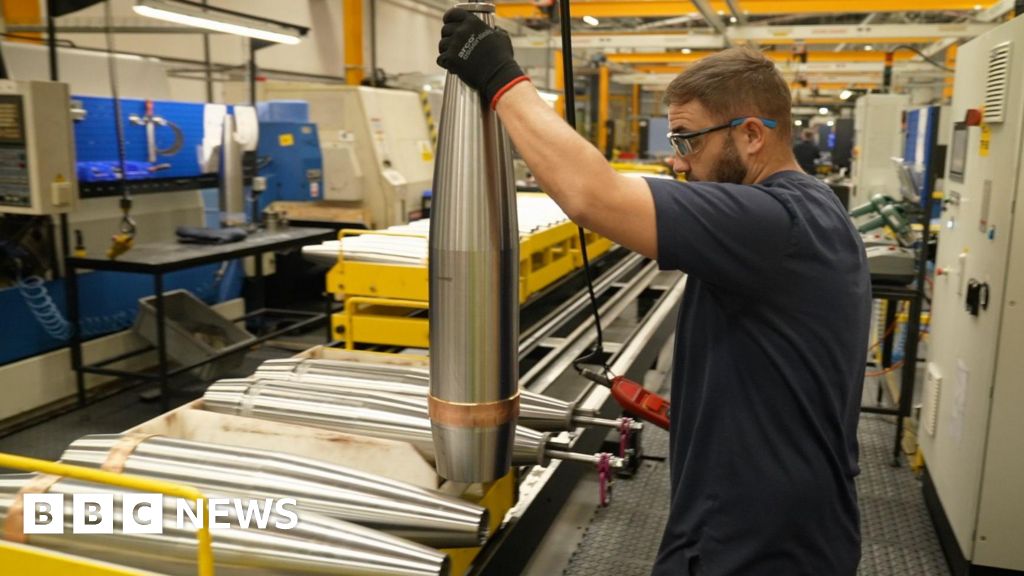ARTICLE AD BOX
By Lucy Hooker
Business reporter, New York
Image source, Getty Images
The ice rinks are opening, the decorations are going up and the Thanksgiving day parade will be back in its full glory this year.
New York is getting ready to embrace tourists with open arms after 20 months of a strictly long-distance relationship.
But visitors are also being warned that prices will be higher, menus more limited, even the toilet paper may not be as soft as you'd like.
Welcome to travel in the wake of Covid.
Before Covid, 65 million tourists were rolling into town every year, more than a million from the UK.
With the ban on visitors from overseas now lifted - as long as they are vaccinated - businesses across New York are gearing up for what they hope will be a tsunami of tourists this winter.
But behind the scenes things are still far from normal.
Short supply
"Cutlery, plateware, glassware, take-out containers, paper products… you name it, it's across the board, even toilet paper," says Philippe Massoud, listing the things that are difficult to get hold of thanks to supply chain challenges.
He is chef and owner of Ilili, a Lebanese restaurant on 5th Avenue.
At a certain standard of venue, things like matching tableware and the right specification of toilet tissue matter, says Mr Massoud. "Sandpaper" is not okay, he says.
Image source, Ilili
Image caption,Philippe Massoud (r) at Illili says some items are hard to get hold of
Like the UK, the US is suffering supply chain bottlenecks, sharply rising prices and staffing shortages that are hampering day-to-day business.
"New York's heart is beating hard and strong," says Mr Massoud, so he's sure tourists will still have the experience they're looking for, but for dining out, they should definitely book ahead.
Ilili has already had to close at lunchtimes. Many of the staff who used to work tables while pursuing careers on Broadway have left the city and not yet returned.
"Everybody without exception is struggling to find staff," says Mr Massoud.
And with the cost of food rising, he says he has no choice but to look at raising his prices too.
Reinvention
Ilili is adapting to cope. But not everyone managed to. Just as in other cities around the world, the pandemic has forced hotels, nightclubs, restaurants, bars and sandwich shops out of business.
But now new venues are beginning to open, including a vast new nightclub near Times Square.
In fact it's a moment of reinvention, that New York is grasping with enthusiasm, according to Fred Dixon, head of New York City & Co the body responsible for promoting the city.
He points to the outdoor dining structures lining much of the city's streets, providing ventilated, safer spaces to dine.
Fred Dixon says New York has used the pause in international tourism to rebuild and reinvent itself
After Covid ripped mercilessly through the city at the start of the pandemic, New Yorkers remain cautious. People wear masks not only on public transport and in shops, but often on the street too.
Proof of vaccination is required to dine indoors at restaurants in New York, attend sports events and theatres, a rule that applies to tourists too.
"There are challenges ahead of us but some of those innovations have kept New York lively and vibrant," says Mr Dixon.
From the time the first lockdown his organisation determined to keep NYC alive in the minds of would-be travellers stuck at home in lockdown. It ran a "New York is missing you" billboard campaign in the UK, to remind them what they were missing.
Now with museums open, rules relaxed and Broadway set to return to full capacity by spring, NYC &Co is switching messages to "New York is ready for you".
Stockpiling
But being ready is harder work than it used to be and visitors may have to exercise some patience, says Wilson Tang, who runs the 100 year old Nom Wah Tea Parlor, in New York's Chinatown district.
Before the pandemic Chinatown attracted hoards of tourists, picking up trinkets, noodles and dumplings. And it was hit earlier and harder than most, thanks in part to rhetoric around "the China virus" and the xenophobia that followed.
Now there are challenges to getting back to normal that can't be overcome overnight, Wilson says.
Image source, Natalie Chitwood
Image caption,Tourists should exercise patience says Wilson Tang
"The wait [for service] might be longer, we might not have the full menu, the pricing might be more expensive than the last time you were here," he warns.
"These are things to take account of as we awake from our Covid slumber."
Nearby Lizy Yee, who runs the Kam Hing Bakery has managed to keep the price of her sponge cakes low for now, but is frantically stockpiling ingredients to head off rising costs.
"We're trying to get three to four months of reserve," she says.
Image source, Ben Hon
Image caption,Lizy Yee is stockpiling ingredients to try to avoid the worst of rising prices
"We're using basements, renting out storage rooms." She has already bought fifty 50lb bags of sugar and wants to bulk buy flour and flavourings too. The hunt for alternative suppliers and better deals is ongoing.
Substitute shampoo
At the luxury end of the market, they're taking a similar strategy.
Rebecca Hubbard general manager of the five star Lotte New York Palace Hotel says she's "elated" at the prospect of returning tourists, but like others she's not taking chances.
The hotel is making sure it is more than fully stocked with anything that might run short, if supply chain bottlenecks continue.
"We're preparing for the worst, continuing to keep our [stock] levels up just in case," Ms Hubbard says.
"Shampoo, toilet paper, linen, paper products, glassware anything guests would normally use in a room."
On top of that the hotel needs a ready supply of masks. They are one of things that have run short in the past, and are susceptible to shipping delays as they're still mainly sourced from Asia.
Street performers are back in Times Square but not everything is exactly as normal
Mitchell Hochberg, president of Lightstone the property company that owns the Moxy chain of hotels says for the moment supply chain problems seem to be getting worse not better, though he insists that won't affect visitors' experience.
"A guest wouldn't know it's a different shampoo or that the air con unit part was bought from a different manufacturer," he says.
But there are some changes.
"We instituted self-service check-in... like in an airport," says Mr Hochberg. "It was well-received and seems to be something that will continue for simplicity."
Image source, Getty Images
Image caption,Some hotels have closed altogether
Moxy Hotels are offering guests the option to have less frequent room-cleaning, every three days rather than daily, if they prefer, for health and safety reasons, not to have staff coming into their room as often.
And for now breakfast is still a takeaway bag of muffin, croissant, yoghurt and the like, rather than a hot buffet, also for Covid-safety reasons, he says.
Switching drinks
Having to find ways round the challenges has its upsides though too.
Hundreds of restaurants around the city have erected extra outdoor seating structures on the roadside
At downtown wine bar Ardesia, it has proved a blessing in disguise.
Mandy Oser, has found an order of white wine from Hungary is stuck in a port in Germany, a favourite Irish whiskey brand won't be available again until Christmas, and George Clooney's Casamigos Tequila is nowhere to be found. So she has been forced to find alternatives.
Amongst her new discoveries are an "outstanding" new artisan tequila and a brand of bourbon made by an African-American owned company in Tennessee.
"For us it's opened up some new channels and pushed us to look rather than just reorder what we ordered a year ago.
"Covid taught us you do not know what is around the corner. We're trying to hold on to that."

 3 years ago
66
3 years ago
66








 English (US) ·
English (US) ·